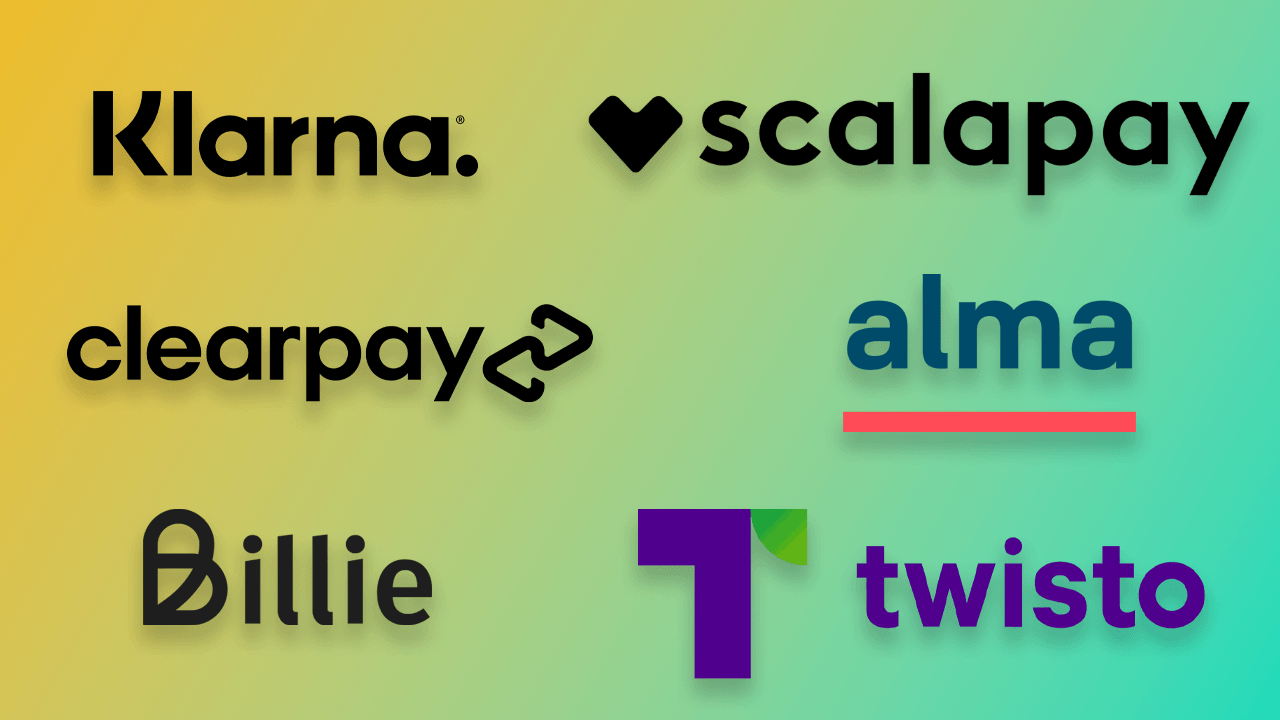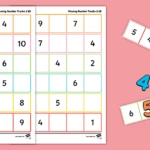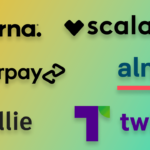Now Reading: Is Klarna Safe? A Deep Dive into Your Financial Security
-
01
Is Klarna Safe? A Deep Dive into Your Financial Security
Is Klarna Safe? A Deep Dive into Your Financial Security

The world of online shopping has changed dramatically. You can now buy almost anything with just a few clicks and have it delivered to your door. One of the biggest players in this new era of e-commerce is Klarna, a service that lets you buy now and pay later. You’ve likely seen its pink logo at the checkout of your favorite stores. But with any financial service, a crucial question arises: is Klarna safe?
It’s smart to ask this question. Handing over your financial information online requires trust. You want to be sure that your data is protected and that the service won’t negatively impact your financial health. In this detailed guide, we will explore every aspect of Klarna’s safety. We’ll look at its security measures, how it handles your data, its impact on your credit score, and what happens if something goes wrong. By the end, you’ll have a clear understanding of whether using Klarna is the right and safe choice for you.
Key Takeaways
- Strong Security: Klarna uses advanced encryption and security protocols to protect user data, similar to those used by major banks.
- Buyer Protection: Klarna offers a robust Buyer Protection Policy that helps you resolve disputes if you don’t receive your order or if it’s not as described.
- Credit Score Impact: Klarna’s “Pay in 4” option generally doesn’t affect your credit score when used responsibly. However, longer-term financing plans may involve a hard credit check and can impact your score.
- Data Privacy: Klarna has a clear privacy policy outlining how it collects and uses your data, but it’s important for users to review it.
- Responsible Use is Key: The primary risk with Klarna is overspending. It’s a tool that requires discipline to use safely without accumulating debt.
What is Klarna and How Does It Work?
Before we can fully answer the question, is Klarna safe, let’s quickly cover what it is. Klarna is a Swedish fintech company that provides online financial services, most notably “Buy Now, Pay Later” (BNPL) payment options for consumers. When you shop at a partner retailer, you can choose Klarna at checkout.
Depending on the retailer and the purchase amount, Klarna typically offers a few ways to pay:
- Pay in 4: This is the most common option. You split your purchase into four equal, interest-free payments. The first payment is due at checkout, and the remaining three are automatically charged to your card every two weeks.
- Pay in 30 Days: This option lets you receive your items first and pay the full amount up to 30 days later, also interest-free.
- Financing: For larger purchases, Klarna offers traditional financing plans that can last from 6 to 36 months. These plans may or may not include interest, depending on the promotion.
This flexibility has made Klarna incredibly popular, but it also means it’s handling sensitive financial information for millions of users. That’s why its security is so important.
The Technical Side: Klarna’s Security Measures
When you use Klarna, you’re trusting them with your personal and financial details. The company understands this and has invested heavily in security infrastructure. The question of is Klarna safe largely depends on these technical protections. Klarna employs security standards that are on par with major financial institutions.
All information sent to and from Klarna’s servers is encrypted using Secure Sockets Layer (SSL) technology. This is the industry standard for protecting online transactions. Think of it as a secure, armored tunnel between your device and Klarna. It scrambles your data, making it unreadable to anyone who might try to intercept it. This level of encryption is essential for any service that handles payment card information and personal identity details.
Furthermore, Klarna adheres to the Payment Card Industry Data Security Standard (PCI DSS). This is a set of strict security requirements designed to ensure that all companies that process, store, or transmit credit card information maintain a secure environment. Compliance with PCI DSS is mandatory for handling cards from major brands like Visa, Mastercard, and American Express. It shows a serious commitment to protecting user data from fraud and breaches.
Internal Security and Fraud Prevention
Klarna doesn’t just protect data in transit; it also has robust internal systems to guard against unauthorized access and fraud. Their information security team works around the clock to monitor for suspicious activity, identify potential threats, and respond to incidents. They use a combination of automated systems and human experts to detect unusual login attempts, strange purchase patterns, or other red flags that could indicate a compromised account. This proactive approach is a critical part of determining if is Klarna safe for everyday use.
Klarna’s Buyer Protection Policy: Your Safety Net
One of the strongest arguments for Klarna’s safety is its Buyer Protection Policy. This policy is designed to give you peace of mind when you shop. If you run into a problem with a purchase made through Klarna, they have your back.
So, how does it work? Let’s say you order a product, and it never arrives. Or maybe it arrives broken, or it’s completely different from what was advertised. In these situations, Klarna’s policy allows you to pause your payment schedule.
Here’s the process:
- Contact the Retailer: Your first step should always be to try and resolve the issue directly with the merchant. Most retailers want to provide good customer service and will work with you to find a solution.
- Report the Problem in the Klarna App: If you can’t resolve the issue with the retailer, you can report the problem directly in the Klarna app. You simply log in, find the purchase in question, and select “Report a problem.”
- Pause Your Payments: Once you report a problem, Klarna will pause your payment schedule. This means you won’t have to make any payments until the dispute is resolved. This is a huge benefit, as you’re not out of pocket for a product you don’t have or that isn’t right.
- Klarna Investigates: Klarna will then work with you and the retailer to investigate the issue. They will ask for any relevant information, such as tracking numbers, photos, or email correspondence.
- Resolution: If the dispute is settled in your favor, Klarna will cancel the remaining payments and help facilitate a refund for any amount you’ve already paid.
This policy significantly reduces the risk of online shopping, making the answer to is Klarna safe a confident “yes” from a consumer rights perspective.
Understanding Data Privacy with Klarna
In our digital age, data is currency. When you sign up for any service, you’re sharing personal information. A key part of the “is Klarna safe” discussion is how the company handles your data. Klarna, like any financial institution, collects a significant amount of information about its users.
This includes:
- Personal Information: Your name, date of birth, address, email, and phone number.
- Financial Information: Your bank account or debit/credit card details.
- Order Information: Details about what you buy, where you buy it, and how much you spend.
- Device Information: Data about the computer or phone you use to access Klarna, including your IP address.
Klarna’s Privacy Policy details exactly what data they collect and why. Primarily, they use this information to verify your identity, assess your eligibility for their payment options, process payments, and prevent fraud. They may also use anonymized data for marketing insights and product improvement. It’s always a good idea to read through the privacy policy of any service you use, including Klarna, to be fully aware of how your data is being managed. For more insights on digital finance trends, resources like those on forbesplanet.co.uk can offer a broader perspective.
The Impact on Your Credit Score
A common concern with BNPL services is their effect on your credit score. Many people worry that using Klarna will hurt their chances of getting a mortgage or car loan in the future. So, when asking is Klarna safe for your financial future, the credit score impact is a major factor.
The answer depends on which Klarna product you use and how you use it.
Pay in 4 and Pay in 30 Days
For Klarna’s most popular interest-free options, the company typically performs a soft credit check when you first sign up or make a purchase. A soft check does not affect your credit score. It’s simply a way for Klarna to verify your identity and get a quick look at your financial history to assess risk.
As long as you make your payments on time for these plans, Klarna does not report your payment history to the major credit bureaus (Experian, TransUnion, Equifax). This means:
- Positive Impact: On-time payments won’t help build your credit history.
- Negative Impact: Late payments on these plans historically haven’t been reported either, though this is changing. Some BNPL providers are beginning to report late payments, so it’s critical to pay on time to avoid any potential negative marks. A late fee will also be applied.
Klarna Financing
For longer-term financing plans, the rules are different. When you apply for financing, Klarna may perform a hard credit check. A hard check, also known as a hard inquiry, is visible to other lenders and can cause a temporary, small dip in your credit score.
Furthermore, these financing plans often function like traditional loans. Your payment history may be reported to the credit bureaus. This can be both a good and a bad thing:
- Good: Making all your payments on time can help you build a positive credit history.
- Bad: Missing payments will almost certainly be reported, which can significantly damage your credit score.
This distinction is crucial for anyone wondering is Klarna safe for their credit rating.
|
Klarna Product |
Type of Credit Check |
Reported to Credit Bureaus? |
Impact on Credit Score |
|---|---|---|---|
|
Pay in 4 |
Soft Check |
No (unless you default) |
Generally none, if paid on time |
|
Pay in 30 Days |
Soft Check |
No (unless you default) |
Generally none, if paid on time |
|
Financing |
Hard Check |
Yes |
Can build or hurt credit, depending on payment history |
The Biggest Risk: The Temptation to Overspend
While Klarna has strong technical security and buyer protection, the greatest risk for many users isn’t external—it’s personal. The ease of “buy now, pay later” can make it tempting to spend more than you can afford. This is the most significant danger to consider when evaluating if is Klarna safe for your financial well-being.
Because the payments are split into smaller, more manageable-looking chunks, it’s easy to lose track of how much you’re actually spending. A $200 purchase might not seem so bad when it’s presented as four payments of $50. But if you make several of these purchases, those small payments can quickly add up to a large monthly obligation.
This can lead to a debt cycle that is hard to break. If you miss a payment, you’ll be charged late fees. If you continue to miss payments, your account could be sent to collections, which will have a severe negative impact on your credit score and financial health.
How to Use Klarna Responsibly
To ensure using Klarna remains safe for your wallet, it’s vital to use it as a budgeting tool, not as a source of extra money.
- Track Your Spending: Use the Klarna app to keep a close eye on all your active payment plans. Know exactly how much you owe and when each payment is due.
- Stick to Your Budget: Before making a purchase with Klarna, ask yourself if you could afford to pay for it in full right now. If the answer is no, you should probably reconsider.
- Set Up Automatic Payments: Ensure you have enough money in your linked bank account or on your card to cover the automatic withdrawals. This prevents missed payments and late fees.
- Don’t Juggle Too Many Plans: Try to limit the number of active Klarna payment plans you have at one time. The more you have, the harder they are to manage.
By following these simple rules, you can enjoy the convenience of Klarna without falling into a debt trap.
Conclusion: So, Is Klarna Safe?
After examining its security measures, buyer protection, data privacy, and financial risks, we can draw a clear conclusion. From a technical and consumer rights standpoint, Klarna is safe. The company uses industry-standard encryption, complies with financial regulations, and offers a strong buyer protection policy that shields users from fraud and disputes with merchants.
However, the safety of Klarna also depends heavily on the user. The platform’s greatest risk is not that your data will be stolen, but that the convenience of BNPL will lead to overspending and debt. Klarna is a tool, and like any tool, it can be used responsibly to your benefit or irresponsibly to your detriment.
If you are a disciplined spender who uses Klarna as a budgeting tool to manage cash flow for purchases you can already afford, it is a safe and convenient option. If you are prone to impulse buying or might use it to live beyond your means, the risks to your financial health are significant. Ultimately, the responsibility for using Klarna safely lies with you.
Frequently Asked Questions (FAQ)
Q1: Can my identity be stolen through Klarna?
While no online service is 100% immune to data breaches, Klarna employs very high-level security measures to protect your information. They use encryption, fraud detection systems, and secure login procedures. The risk of identity theft through a direct breach of Klarna is low, but it’s always important to use a strong, unique password for your account and be wary of phishing scams pretending to be from Klarna.
Q2: What happens if I can’t make a Klarna payment?
If you think you might miss a payment, it’s important to be proactive. You can contact Klarna’s customer service to see if it’s possible to move your due date. If you miss a payment on a “Pay in 4” plan, Klarna will try to collect the payment again at a later date. If it’s still unsuccessful, you will be charged a late fee (up to $7) and your ability to use Klarna in the future may be restricted. For financing plans, a missed payment can be reported to credit bureaus and negatively impact your credit score.
Q3: Does Klarna share my data with other companies?
Yes, Klarna shares some data as outlined in its Privacy Policy. This is necessary for functions like processing payments with merchants, verifying your identity with third-party services, and reporting to credit bureaus for financing plans. They may also share data for marketing purposes, but you often have options to opt out of certain types of data sharing. Reading the policy is the best way to understand the specifics.
Q4: Is Klarna better than using a credit card?
It depends on your goals. For interest-free installment payments, Klarna’s “Pay in 4” can be better than a credit card if you would otherwise carry a balance and accrue high interest. However, credit cards often offer rewards like cashback or travel points, which Klarna does not. Credit cards can also be a more powerful tool for building a long-term positive credit history if used responsibly. The answer to is Klarna safe compared to a credit card comes down to interest avoidance versus credit-building and rewards.
Q5: Can I get a refund if I return an item I bought with Klarna?
Yes. The return process is handled by the retailer, just like any other purchase. Once you return the item according to the store’s policy and they process your return, the retailer will notify Klarna. Klarna will then cancel any remaining scheduled payments and refund any amount you have already paid for the item back to your original payment method.
















